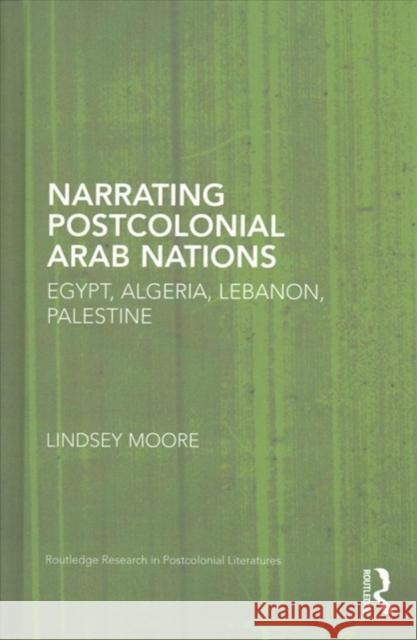Narrating Postcolonial Arab Nations: Egypt, Algeria, Lebanon, Palestine » książka
Narrating Postcolonial Arab Nations: Egypt, Algeria, Lebanon, Palestine
ISBN-13: 9781138830882 / Angielski / Twarda / 2017 / 242 str.
Narrating Postcolonial Arab Nations: Egypt, Algeria, Lebanon, Palestine
ISBN-13: 9781138830882 / Angielski / Twarda / 2017 / 242 str.
(netto: 718,58 VAT: 5%)
Najniższa cena z 30 dni: 654,86
ok. 16-18 dni roboczych.
Darmowa dostawa!
This book argues for the foundational and ongoing importance of the Arab world to postcolonial studies, challenging the marginality of Arab literary and theoretical contexts in the field to date and historicizing the 'Arab Spring' and its aftermath. Countering an emphasis in postcolonial studies on place, space, and mobility tropes, Moore underlines ways in which literature emerging from Arab contexts is configured by temporal structures, as well as histories, that enhance our understanding of what 'the postcolonial, ' its beginnings, and its limits might be. Chapters focused on Morocco, Algeria, Lebanon, Egypt, and Palestine also explore connections between Arab national histories and ways of writing about them. Moore juxtaposes modes of working through the past, such as haunting, trauma, and melancholia, with orientations toward the future that include revolution and remembering towards justice. Hinge chapters on Algerian and Lebanese violence, obsessively reworked in national literatures, shed light on the structuring exclusion of women, non-normative masculinities, and other minority identities in constructions of Arab and Muslim (pan-)nationalism. Throughout, the book draws on thinkers affiliated to Arab world contexts, including Albert Camus, Jacques Derrida, Frantz Fanon, Samir Kassir, Abdelkebir Khatibi, Albert Memmi, and Edward Said. It provides analysis of literary narratives by, among other authors, Rabih Alameddine, Etel Adnan, Alaa Al-Aswany, Nada Awar Jarrar, Rashid Boudjedra, Paul Bowles, Mohamed Choukri, Assia Djebar, Rawi Hage, Naguib Mahfouz, and Raja Shehadeh. This will be an indispensable volume for students and scholars of Postcolonial, Arab, and World literatures.











